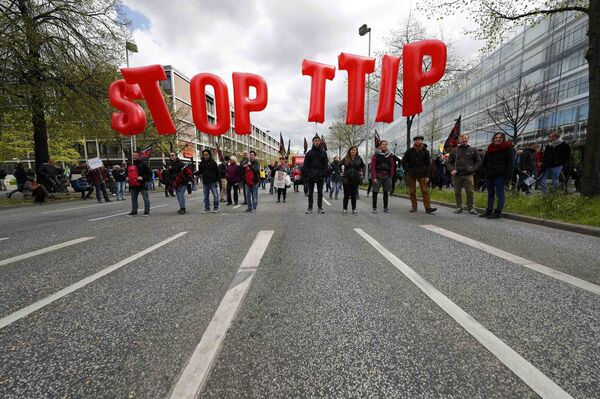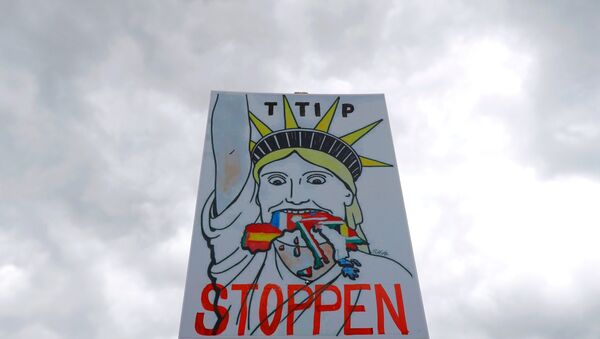Her admission supports views by critics of the deal that negotiations have been held behind closed doors. Pritzker also said the deal was a chance to do away with "rules and regulations that are standing in the way of doing more business together" — confirming the worst fear of those opposed to the deal.
The TTIP negotiations are due to create the biggest trade pact in the world, between the European Union and the United States. However, the talks have been branded secretive, with lawmakers fighting to access key documents and allegations of mass lobbying by big corporates keen to push a commercial agenda.
TTIP Interview with US Commerce Secretary Penny Pritzker — SPIEGEL ONLINE https://t.co/gzkr5kfQGZ
— David Goalstone (@ghostwriterREAL) 26 April 2016
In an interview with Der Spiegel magazine Pritzker said:
"In a trade negotiation, we must balance transparency, a principle the United States holds dear, with the confidentiality necessary for negotiators to share information and have frank conversations that are essential to concluding trade agreements. Another tremendous opportunity presented by TTIP is the chance to deal with rules and regulations that are standing in the way of doing more business together."
Washington Wishlist
Leaked documents show that large multinationals and the US will be able to exert pressure on the EU when the Brussels institutions consider legislation over trade — effectively handing powers to US authorities over European affairs.

The revelations show that — under the Transatlantic Trade and Investment Partnership (TTIP) agreement to create the biggest trading block in the world between the US and the EU — "regulatory cooperation" between the US and the EU would mean that the European Commission would have to allow Washington a say in future trade legislation.
In December 2015, after months of campaigning, European lawmakers won a battle to have access to previously restricted documents associated with the controversial Transatlantic Trade and Investment Partnership (TTIP) negotiations.
Until then, only a limited number of Members of the European Parliament (MEPs) — believed to be around 30 — had been able to access TTIP consolidated documents classified as EU-restricted, due to their sensitivity for the EU and the US — the so called "consolidated texts" reflecting the draft compromises between the EU and the US.



